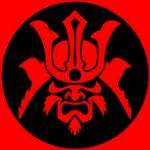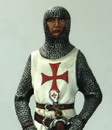molte armi di fascia economica sono una vera ciofeca e non costituiscono certo un investimento nel tempo.
tra queste, per esperienza personale, metterei sicuro le semiautomatiche ruger: finora l'unica semiauto che hovisto con le guide del fusto in plastica, per non dire del resto...
ecco come il noto armaiolo grant cunningham (http://grantcunningham.com/index.html) cerca di spiegare perchè non vuole operare sulle taurus, infondo all'articolo una simpatica nota sulle 1911 norinco:
Occasionally someone will call or email: "I'm looking for a good gunsmith - do you work on Taurus revolvers?" When I politely inform the person that I do not, the result is often indignance, as if to say "how dare you decline to work on my fine possession! You have insulted me, suh!" (Delivered in the best antebellum manner, of course.)
Taurus revolvers possess many positive traits: they're available in a wide variety of calibers and configurations, they are usually fairly reliable, and they are priced right. Unfortunately, it's that last bit that gets me into trouble.
You see, the most expensive part of building a handgun, particularly a revolver, is the finishing work. You can't automate the polishing process, and Taurus revolvers are generally very well polished and finished. Given their low price point, this means that finishing is a large percentage of the purchase price. This means that they have to skimp somewhere, and the place that they do is in parts fitting.
Taurus guns have parts that simply do not fit as tightly - as precisely - as some other manufacturers. Yes, you can do a shadetree action job, maybe swap springs, and improve the action - but it will never be truly 'great' without rebuilding the gun.
I've purchased a couple of Taurus revolvers (Taurii??) to work on, to evaluate. While I like the guns (the now-discontinued model 445 is really neat, and I carry it occasionally) the effort to put a truly world-class action job on one results in huge labor costs.
Look at it this way: if you want a top-end wheelgun you have to pay for fitting parts at some point. With a Taurus, it doesn't happen at the time of purchase; it can only occur in the gunsmith's hands, which drives the cost up considerably. Like the folks who commissioned custom Norinco 1911s about a decade ago, what you end up with is a really expensive $300 gun that no one wants to buy.
I'd rather spend my time working on revolvers that will actually see an increase in value after quality work has been done, and I suspect their owners are the same way. That just won't happen with a Taurus, because after all is said and done it'll still just be a Taurus.
armi di cui si sconsiglia l'aquisto
6 messaggi
• Pagina 1 di 1
-

metzger - SUPER SHOOTER

- Messaggi: 1157
- Iscritto il: ven ott 02, 12:01:23
- Località: SALERNO
- Has thanked: 0 time
- Been thanked: 0 time
Come dire: spendere soldi per aggiustare una ciofeca ... Resta sempre tale ed il Suo Valore non Migliora.
Una mente per pensare
Un cuore per amare
Una spada per difendere i deboli
Un cuore per amare
Una spada per difendere i deboli
-

ordotempli - BEST SUPPORTER-coppa bronzo

- Messaggi: 7212
- Iscritto il: dom set 20, 09:24:43
- Località: Regno delle Due Sicilie
- Has thanked: 0 time
- Been thanked: 2 times
- Medals: 3
-



Ottimo direi.. anche sulla Norinco, alla fine ha senso se la compri e ci metti le mani tu stesso, se sei capace e ti piace anche farlo. Sapendo che anche quando avrai fatto l'impossibile sempre una Norinco avrai da rivendere. 

"Hoole: Mi chiedo se gli altri si sono persi come noi.
Winters: Non ci siamo persi soldato: siamo in Normandia"
Band of Brothers
Winters: Non ci siamo persi soldato: siamo in Normandia"
Band of Brothers
-

Viper - SPECIAL MEMBER

- Messaggi: 4872
- Iscritto il: dom set 20, 20:17:41
- Località: Chiari, Brescia
- Has thanked: 3 times
- Been thanked: 1 time
- Medals: 4
-




Tuttavia può essere valido l'acquisto se intendi divertirti ad usare lima e ...olio di gomito oltre che fantasia ... la tua capacità FORSE migliorerà l'arma, non il suo valre commerciale : in compenso avrai capito qualcosa in più e ti sarai almeno divertito. Può tuttavia essere un danno se ... non hai capacità, non hai fantasia, non hai la possibiltà di rivenderla nemmeno come rottame ... 

Una mente per pensare
Un cuore per amare
Una spada per difendere i deboli
Un cuore per amare
Una spada per difendere i deboli
-

ordotempli - BEST SUPPORTER-coppa bronzo

- Messaggi: 7212
- Iscritto il: dom set 20, 09:24:43
- Località: Regno delle Due Sicilie
- Has thanked: 0 time
- Been thanked: 2 times
- Medals: 3
-



6 messaggi
• Pagina 1 di 1
Torna a ARGOMENTI VARI IN TEMA DI ARMI-Various topics about weapons
Chi c’è in linea
Visitano il forum: Nessuno e 21 ospiti


